Want to know more about the Best Gerontology Schools In the US and make an informed decision? Here is a good place to start.
Are you ready to dive into the world of aging, but don’t know where to start? We’ve done some digging and found the best schools for your gerontology degree.
These schools will expand your mind and deepen your understanding of the world around you.
Grab your reading glasses, and let’s explore the top programs that will have you shouting “aging gracefully” from the rooftops.
Please note that schools are selected based on our criteria (at the end of the article), ranked by the latest acceptance rate.
Table of Contents
#25. University of Utah

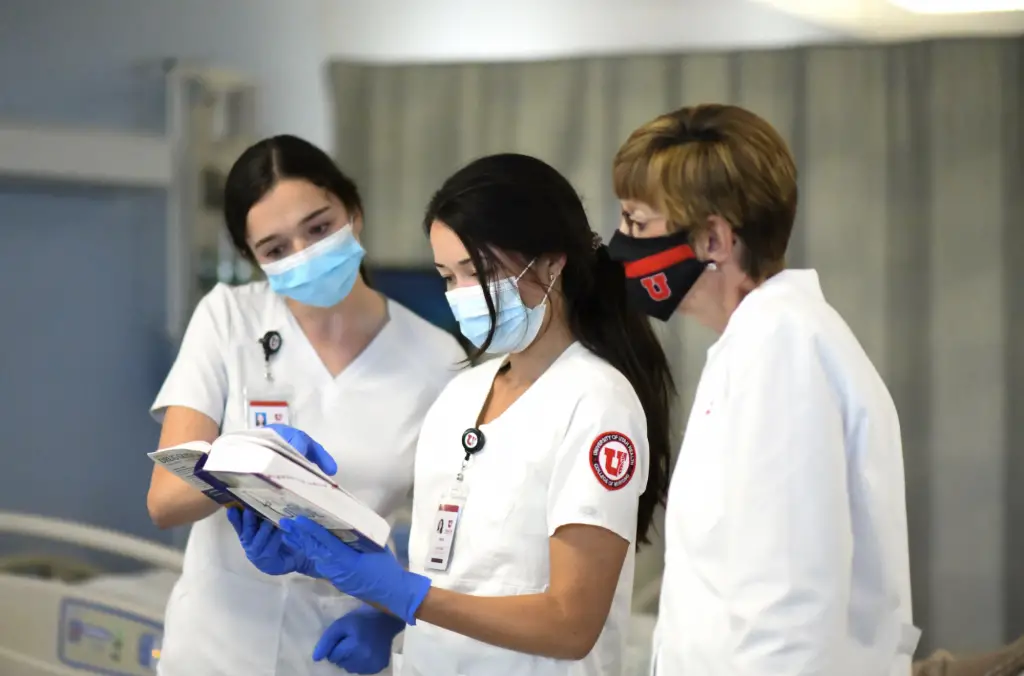
- Acceptance rate: 95%
- Average entry score: 1180-1390 SAT or 22-30 ACT
- Student-to-faculty ratio: 17 to 1
- Estimated cost of attendance (tuition and fees): $25,179-46,752
- Average earning potential for graduates: $54,496 (Zippia)
With a curriculum that covers everything from the aging process to caregiving, the University of Utah equips students with the tools they need to succeed in the ever-changing world of elder care.
The program offers internships and research projects that will give you a chance to put your newfound knowledge to the test.
And if you’re looking for a more flexible way to learn, the online certificate program is the perfect option for you.
Source: University of Utah
#24. Kansas State University

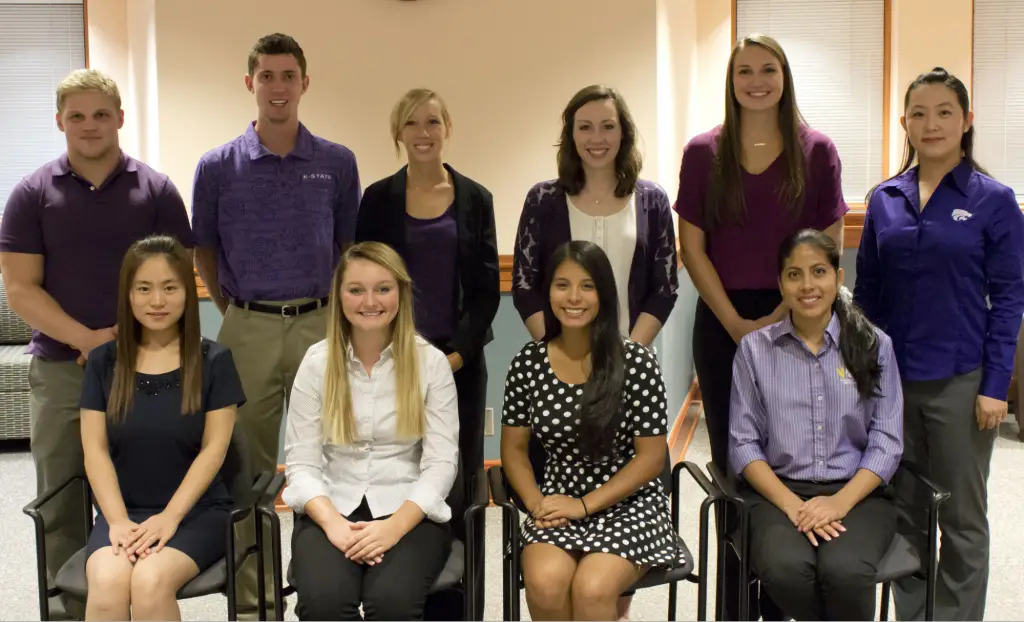
- Acceptance rate: 95%
- Average entry score: 1165 SAT or 24-28 ACT
- Student-to-faculty ratio: 18 to 1
- Estimated cost of attendance (tuition and fees): $42,057
- Average earning potential for graduates: $32,287 (College Factual)
Kansas State University offers flexible gerontology programs that cater to students’ varied needs. The online master’s program in gerontology is designed to allow students to customize their coursework and specialize in areas of their interest.
This may include long-term care, aging, and program planning and evaluation. The program also offers two graduate certificates in gerontology that can be earned concurrently with the master’s degree or independently.
Students also have the option of pursuing a graduate minor in gerontology alongside a different master’s degree program. The versatility and adaptability of these programs make them an attractive option for students seeking to advance their careers in gerontology.
Source: College of Health and Human Sciences
#23. University of Kentucky

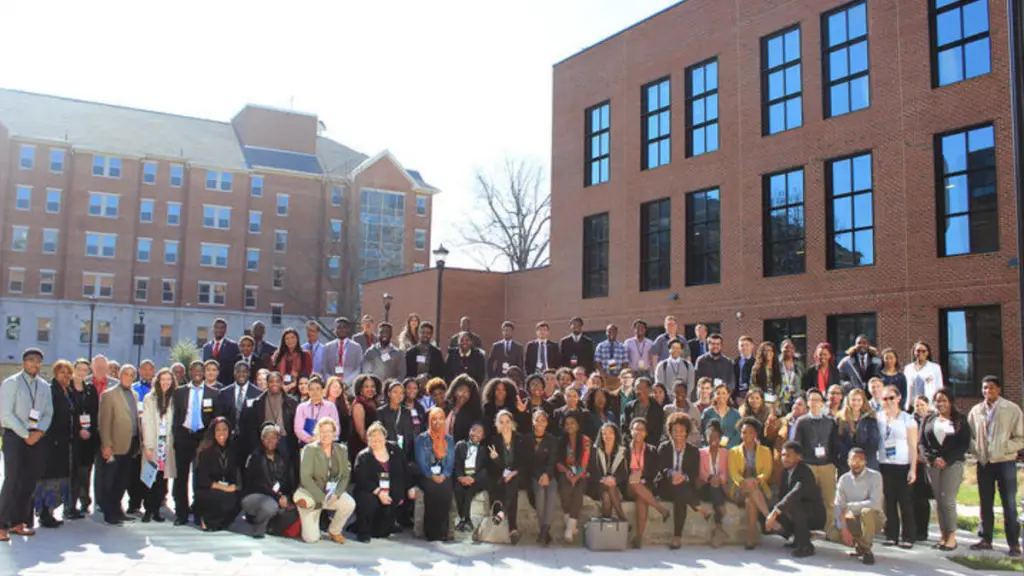
- Acceptance rate: 94%
- Average entry score: 1070-1320 SAT or 21-28 ACT
- Student-to-faculty ratio: 16 to 1
- Estimated cost of attendance (tuition and fees): $54,688
- Average earning potential for graduates: $56,000 (Payscale)
The gerontology program at the University of Kentucky is a small yet dedicated program with four full-time faculty and 17 students.
This program offers a multidisciplinary approach to the study of aging, drawing on fields such as biology, psychology, sociology, and public health.
Students in the program have the opportunity to engage in research and service learning opportunities, as well as internships and other hands-on experiences.
The program’s faculty are all actively engaged in research related to aging, and students benefit from their expertise and mentorship.
Source: Gerontology University of Kentucky
#22. California State University Sacramento


- Acceptance rate: 94%
- Average entry score: 930-1130 SAT or 17-23 ACT
- Student-to-faculty ratio: 22 to 1
- Estimated cost of attendance (tuition and fees): $34,072-$45,952
- Average earning potential for graduates: $50,050 (Payscale)
Cal State Sacramento’s gerontology program is like a fountain of youth for students, offering a plethora of courses on aging and health, social policy, and research methods.
The faculty are the wise sages of the field, imparting their gerontological knowledge to eager students.
Graduating from this program is like having a golden ticket to a world of career opportunities in healthcare, social services, and research.
Source: Gerontology Department
Similar articles like this:
- 25 Best Schools For Neuroscience In The US
- 25 Best Pharmaceutical Sciences Schools In The US
- 25 Best Astronomy Schools In The US
#21. Niagara University


- Acceptance rate: 92%
- Average entry score: 1020-1200 SAT or 20-26 ACT
- Student-to-faculty ratio: 11 to 1
- Estimated cost of attendance (tuition and fees): $25,660-$51,320
- Average earning potential for graduates: $35,000 (School Authority)
With its comprehensive curriculum, experienced faculty, and hands-on learning opportunities, it’s no wonder this program is a crowd favorite. You’ll get the opportunity to explore the study of aging and the challenges faced by older adults, all while preparing for a career in a growing field.
Plus, with internships at nursing homes, hospitals, and other healthcare facilities, you’ll get to put your knowledge into practice and gain valuable experience.
The highly respected faculty members have extensive experience in gerontology. They are dedicated to helping students make a positive impact on the lives of seniors.
Source: Niagara University
#20. Iowa State University

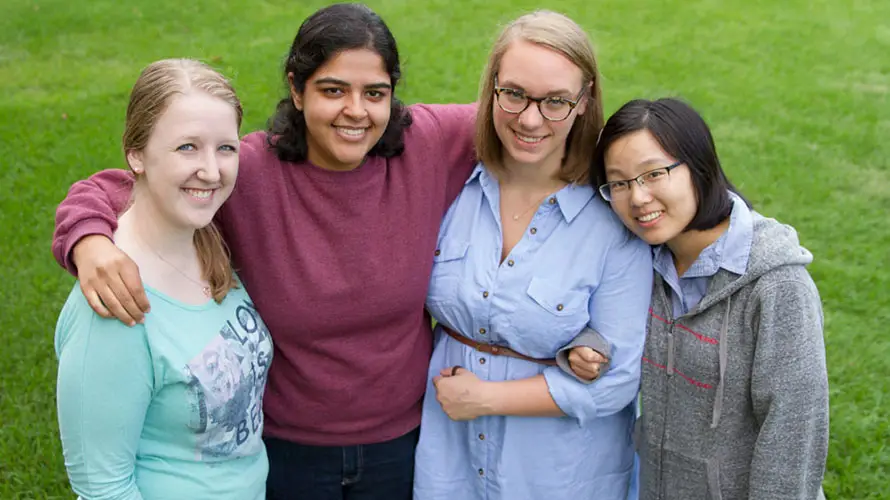
- Acceptance rate: 91%
- Average entry score: 1100-1340 SAT or 21-28 ACT
- Student-to-faculty ratio: 19 to 1
- Estimated cost of attendance (tuition and fees): $21,940-$37,128
- Average earning potential for graduates: $66,441 (College Factual)
Iowa State University offers a highly acclaimed gerontology program that provides students with comprehensive knowledge and training in the field of aging.
This program is designed to equip students with the expertise needed to promote healthy aging through research and community engagement.
Their distinguished faculty are experts in the field and provide personalized mentorship to students. Students have access to state-of-the-art facilities and resources, enhancing their learning experience.
By enrolling in Iowa State University’s gerontology program, students can expect a challenging academic curriculum.
Source: Iowa State University Gerontology Program
#19. University of Mississippi


- Acceptance rate: 89%
- Average entry score: 1160-1600 SAT
- Student-to-faculty ratio: 16 to 1
- Estimated cost of attendance (tuition and fees): $27,046-$43,888
- Average earning potential for graduates: $24,300 (College Simply)
The gerontology degrees at the University of Mississippi are as unique as a unicorn in the field of horses. Students get the full package with an interdisciplinary curriculum that covers everything from health to public policy.
They also get to roll up their sleeves and get hands-on experience through research, internships, and community outreach programs.
Graduates of the gerontology degree program are not just armed with knowledge, but with the power to make a real difference in the lives of older adults and their families. It’s like they’ve been given a magic wand to transform the world of aging!
Source: Division of Geriatrics and Gerontology
#18. Quinnipiac University


- Acceptance rate: 88%
- Average entry score: 1080-1300 SAT or 22-28 ACT
- Student-to-faculty ratio: 15 to 1
- Estimated cost of attendance (tuition and fees): $69,360
- Average earning potential for graduates: $52,900 (School Authority)
The Gerontology Program at Quinnipiac University is an interdisciplinary academic program that provides students with a deep understanding of aging issues.
Taught by a team of experts in gerontology, the program offers students the opportunity to explore topics such as aging policy, caregiving, and end-of-life issues from a variety of perspectives.
Students can specialize in areas such as dementia care, hospice care, or healthcare management for older adults. One unique aspect of the program is the emphasis on experiential learning. It provides students with internship opportunities, service projects, and research initiatives.
Source: Quinnipiac University
Similar articles like this:
- 25 Best Physics Schools In The US
- 25 Best Psychology Schools In The US
- 25 Best Sociology Schools In The US
#17. Miami University Oxford
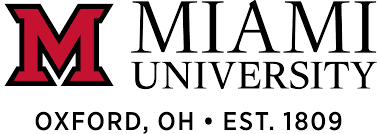

- Acceptance rate: 88%
- Average entry score: 1220-1410 SAT or 25-31 ACT
- Student-to-faculty ratio: 16 to 1
- Estimated cost of attendance (tuition and fees): $33,673-$53,409
- Average earning potential for graduates: $30,000-$ 48,000 (College Factual)
Miami University-Oxford offers a range of gerontology programs, including a bachelor’s degree, a minor, and a graduate certificate.
The Scripps Gerontology Center provides students with access to a wealth of resources, including research opportunities, internships, and a gerontology library.
Graduates of the program are well-equipped to pursue careers in the field of gerontology, with job prospects including positions in healthcare, social services, and research.
The center also hosts a variety of events and lectures throughout the year. This provides students with opportunities to connect with industry leaders and stay up-to-date on the latest developments in the field.
Source: Scripps Gerontology Center
#16. Regent University


- Acceptance rate: 86%
- Average entry score: 990-1220 SAT or 19-25 ACT
- Student-to-faculty ratio: 21 to 1
- Estimated cost of attendance (tuition and fees): $29,832
- Average earning potential for graduates: $35,000 (College Factual)
Regent University’s gerontological studies program prepares students to work with the aging population. Graduates of this program have a wide range of job opportunities available to them.
They can work as geriatric care managers, social workers, healthcare administrators, senior living facility managers, or policy analysts.
With the aging population growing rapidly, the demand for gerontological specialists is expected to rise significantly in the coming years. Regent University’s program provides students with the knowledge and skills necessary to meet this demand.
Source: Regent University
#15. University of Northern Iowa
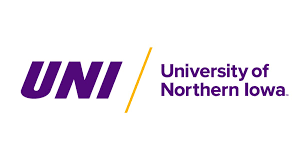
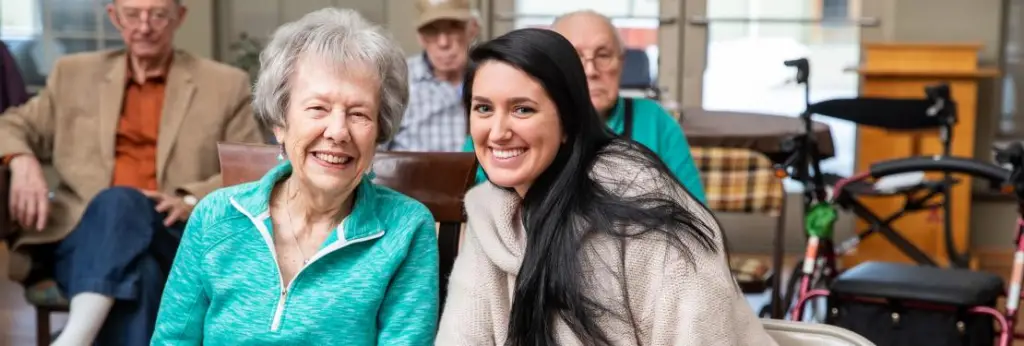
- Acceptance rate: 86%
- Average entry score: 980-1190 SAT or 20-26 ACT
- Student-to-faculty ratio: 16 to 1
- Estimated cost of attendance (tuition and fees): $31,751
- Average earning potential for graduates: $56,361 (College Factual)
The University of Northern Iowa’s 4-year gerontology major is a great way to learn more about aging. This program is designed to equip you with the skills to care for older adults with the finesse of a pro.
From the physical to the psychological, you’ll learn all about the needs of the elderly and how to tackle the challenges they face.
Through internships and research opportunities, you’ll gain hands-on experience and hone your communication, advocacy, and problem-solving skills.
Graduates of this program are ready to rock the world of long-term care and make a meaningful impact on the lives of older adults.
Source: Gerontology Major
#14. Mount Saint Mary’s University


- Acceptance rate: 82%
- Average entry score: 1030-1230 SAT or 21-26 ACT
- Student-to-faculty ratio: 10 to 1
- Estimated cost of attendance (tuition and fees): $61,410
- Average earning potential for graduates: $33,459 (Campus Reel)
Gerontological studies at Mount Saint Mary’s University focus on the study of aging and its impact on individuals, families, and society.
This program provides students with a comprehensive understanding of the physical, social, and psychological aspects of aging.
Through coursework, research, and practical experience, students learn how to support and care for older adults, including those with chronic illnesses and disabilities.
This program contributes to caregiving by preparing students to work in various settings where they can make a difference in the lives of older adults and their families.
Source: Mount Saint Mary’s University
Similar articles like this:
- 25 Best Political Science In The US
- 25 Best Social Sciences Schools In The US
- 25 Best Veterinary Schools In The US
#13. University of Nebraska Omaha
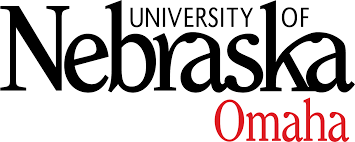
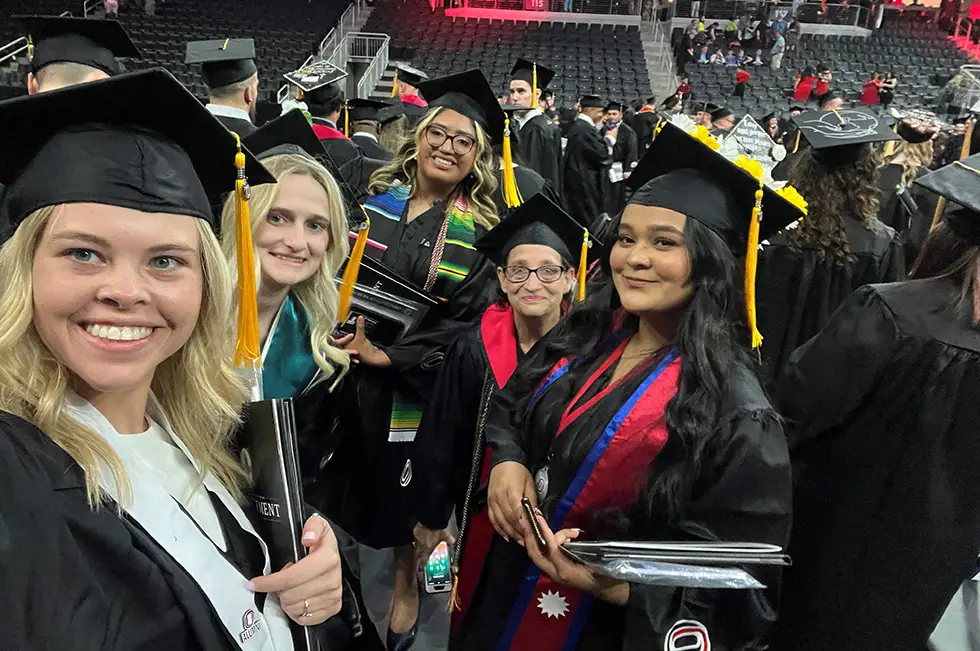
- Acceptance rate: 82%
- Average entry score: 1140-1600 SAT
- Student-to-faculty ratio: 16 to 1
- Estimated cost of attendance (tuition and fees): $23,221-$36,803
- Average earning potential for graduates: $43,400 (College Simply)
The gerontology programs at the University of Nebraska Omaha offer a multidisciplinary approach that can be truly life-changing for upcoming gerontologists.
By blending knowledge and expertise from various fields, students gain a deep understanding of the complexities of aging and the unique challenges faced by older adults.
This approach allows students to develop a holistic perspective on aging, which they can use to make a real difference in the lives of older adults. Whether students are interested in research, policy, or direct service, the gerontology programs at UNO provide them with the tools and knowledge they need to succeed.
Source: Department of Gerontology
#12. Winston-Salem State University

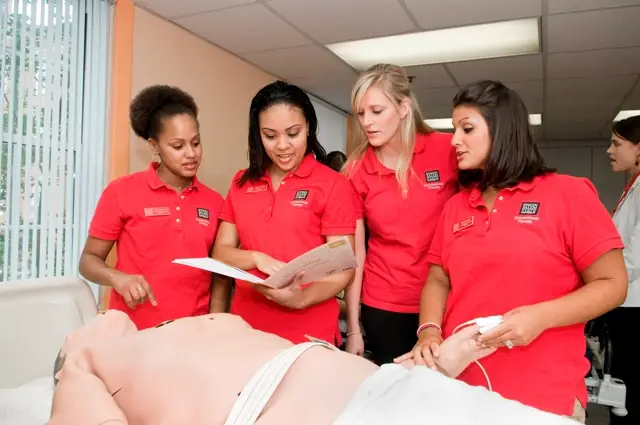
- Acceptance rate: 81%
- Average entry score: 890-1030 SAT or 15-19 ACT
- Student-to-faculty ratio: 16 to 1
- Estimated cost of attendance (tuition and fees): $22,603
- Average earning potential for graduates: $48,000-$72,000 (Glassdoor)
Winston-Salem State University’s BA in Gerontology program emphasizes empathy and social justice in long-term care. The curriculum prepares students to address the complex needs of older adults and their families through a person-centered approach.
It also trains students to recognize and address issues of social injustice in long-term care settings. Students participate in internships and service-learning opportunities that provide hands-on experience working with older adults.
The program’s graduates possess the necessary skills and knowledge to positively impact their communities by improving caregiving services for older adults.
Source: Winston-Salem State University
#11. University of Massachusetts Boston
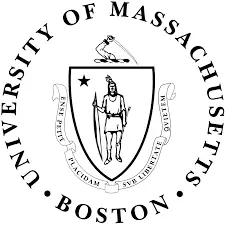

- Acceptance rate: 79%
- Average entry score: 1060-1280 SAT or 24-30 ACT
- Student-to-faculty ratio: 16 to 1
- Estimated cost of attendance (tuition and fees): $36,581
- Average earning potential for graduates: $47,500 (College Simply)
The University of Massachusetts Boston’s programs are widely respected and offer students a wealth of opportunities. Whether you’re pursuing a certificate, graduate, or Ph.D. degree, UMass Boston has you covered.
Their curriculum is comprehensive and covers several topics, from aging and society to healthcare and policy. UMass Boston also offers students hands-on experiences through internships and research opportunities, giving them a chance to apply their knowledge in real-world settings.
And if that’s not enough, the department regularly hosts events and workshops connecting students with field professionals.
Source: McCormack Graduate School of Policy and Global Studies
#10. Ithaca College
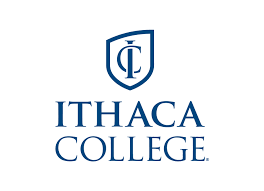
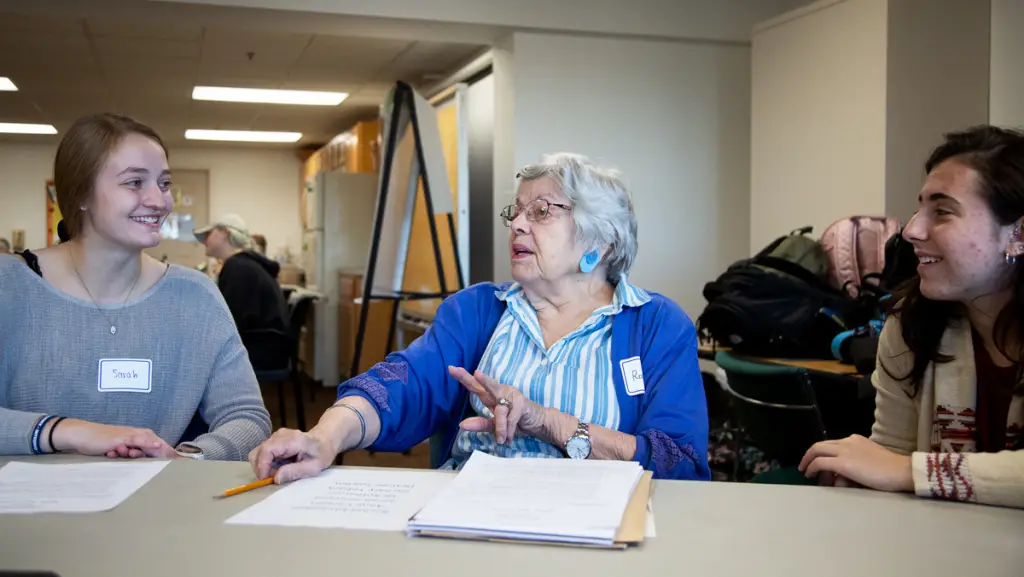
- Acceptance rate: 78%
- Average entry score: 1180-1350 SAT or 27-31 ACT
- Student-to-faculty ratio: 10 to 1
- Estimated cost of attendance (tuition and fees): $65,677
- Average earning potential for graduates: $44,800 (College Simply)
A beautiful campus nestled in the heart of the Finger Lakes region, surrounded by rolling hills and pristine lakes. Now imagine a program that prepares students to tackle one of the most pressing issues of our time: aging. That’s right, I’m talking about Ithaca College’s gerontology programs.
This institution offers courses in biology, psychology, policy, and leadership. As a result, students get a well-rounded education that prepares them for a wide range of careers.
The faculty and staff at Ithaca College are passionate about gerontology. They bring that enthusiasm to everything they do. Whether it’s leading a class discussion or working one-on-one with a student, they’re invested in helping students succeed.
Source: Department of Gerontology, Ithaca College
Similar articles like this:
- 25 Best Information Technology Schools In The US
- 25 Best Zoology Schools In The US
- 25 Best Journalism Schools In The US
#9. Webster University
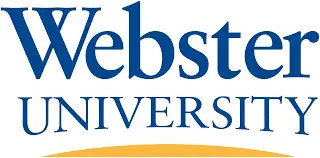

- Acceptance rate: 59%
- Average entry score: 1010-1250 SAT or 19-27 ACT
- Student-to-faculty ratio: 7 to 1
- Estimated cost of attendance (tuition and fees): $46,632
- Average earning potential for graduates: $40,828 (College Factual)
Webster University’s gerontology program is a flexible and impactful program that prepares students to address the challenges and opportunities presented by an aging population.
The program offers both online and on-campus courses, allowing students to tailor their education to fit their schedules and learning preferences.
Additionally, the program’s interdisciplinary curriculum draws from several fields to provide students with a comprehensive understanding of aging issues.
Graduates of the program are prepared to make a significant impact in the lives of older adults—whether as family members or professionals.
Source: Gerontology Programs at Webster University
#8. William Carey University
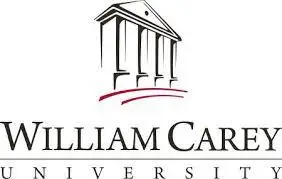
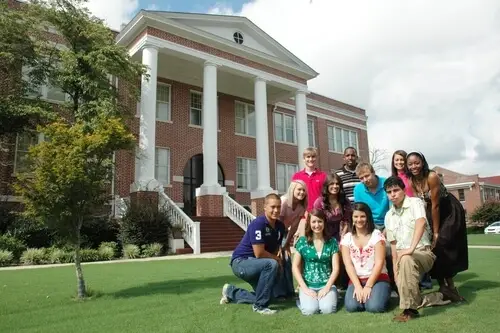
- Acceptance rate: 57%
- Average entry score: 950 SAT or 20 ACT
- Student-to-faculty ratio: 14 to 1
- Estimated cost of attendance (tuition and fees): $41,568
- Average earning potential for graduates: $28,000 (Zippia)
William Carey University’s gerontology programs are designed to equip students with the knowledge and skills necessary to work with and care for the elderly population.
The programs provide a comprehensive understanding of the aging process, as well as the physical and mental health challenges that come with it.
Students are also trained in the latest techniques and technologies used to improve the lives of seniors. This program helps students by preparing them for a variety of careers in the gerontology field.
Source: William Carey University Academic Catalog
#7. University of Missouri St. Louis
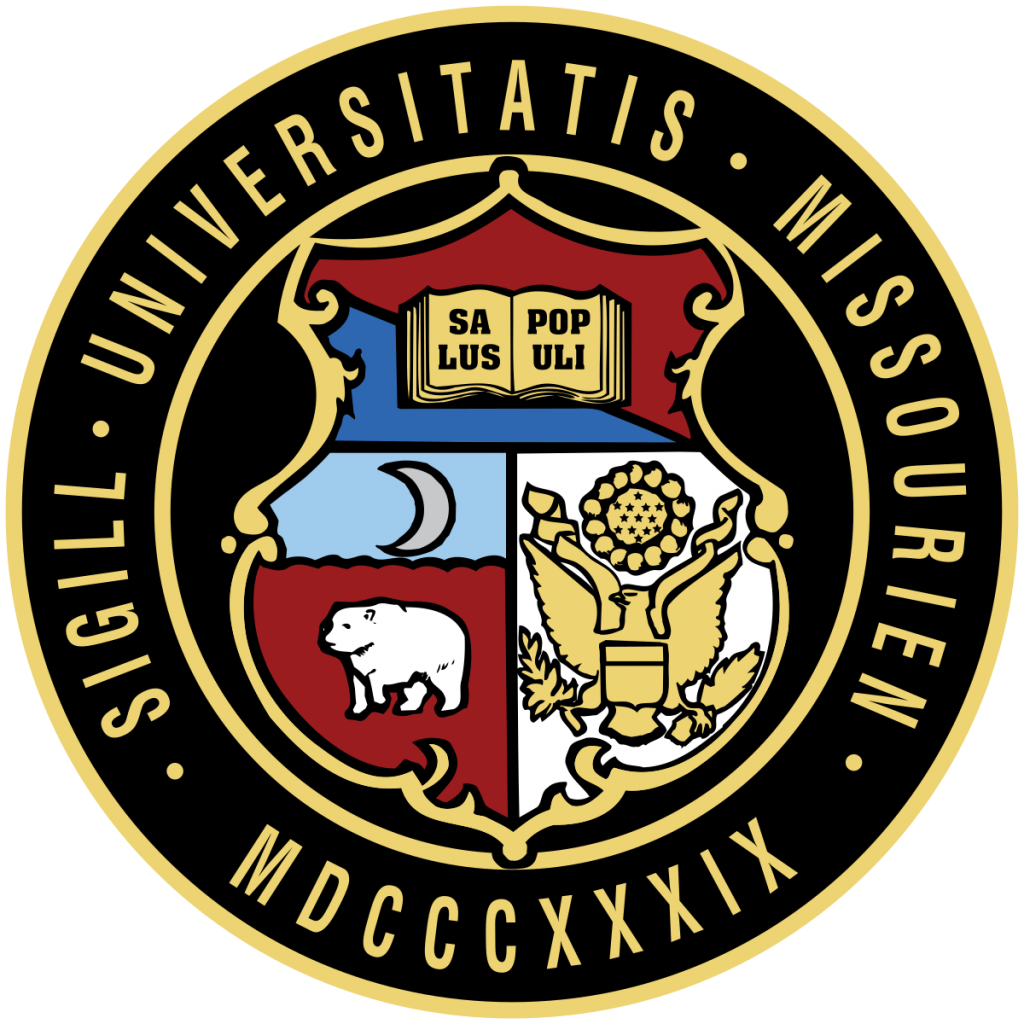

- Acceptance rate: 56%
- Average entry score: 1140 SAT or 24 ACT
- Student-to-faculty ratio: 19 to 1
- Estimated cost of attendance (tuition and fees): $27,917-$47,097
- Average earning potential for graduates: $40,828 (College Factual)
The gerontology programs at the University of Missouri St. Louis offer a broad-based curriculum that prepares students for careers in aging-related fields. These gerontologists study health, psychology, sociology, and policy in order to understand the complex issues related to aging.
The curriculum also includes hands-on experiences through internships and research opportunities, providing practical skills that can be applied in the workforce.
Graduates of the program have found employment in a variety of settings—including healthcare, social services, and public policy.
Source: UMSL Gerontology Program
#6. Anderson University


- Acceptance rate: 50%
- Average entry score: 1000-1160 SAT or 18-25 ACT
- Student-to-faculty ratio: 16 to 1
- Estimated cost of attendance (tuition and fees): $46,912
- Average earning potential for graduates: $29,055 (College Factual)
Anderson University’s gerontology programs offer students a unique opportunity to blend the study of aging with Christian teachings.
The curriculum integrates biblical principles of compassion and service with the latest research on aging, preparing students to serve older adults with excellence and care.
Through this course, students gain a deep understanding of the physical, emotional, and spiritual needs of older adults while also learning how to apply Christian values in their work.
Source: Human Services, Anderson University
Similar articles like this:
- 25 Best Schools For Soil Sciences In The US
- 25 Best Art History Schools In The US
- 25 Best Schools For Aerospace Engineering In The US
#5. University of South Florida
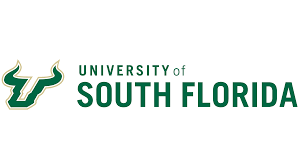
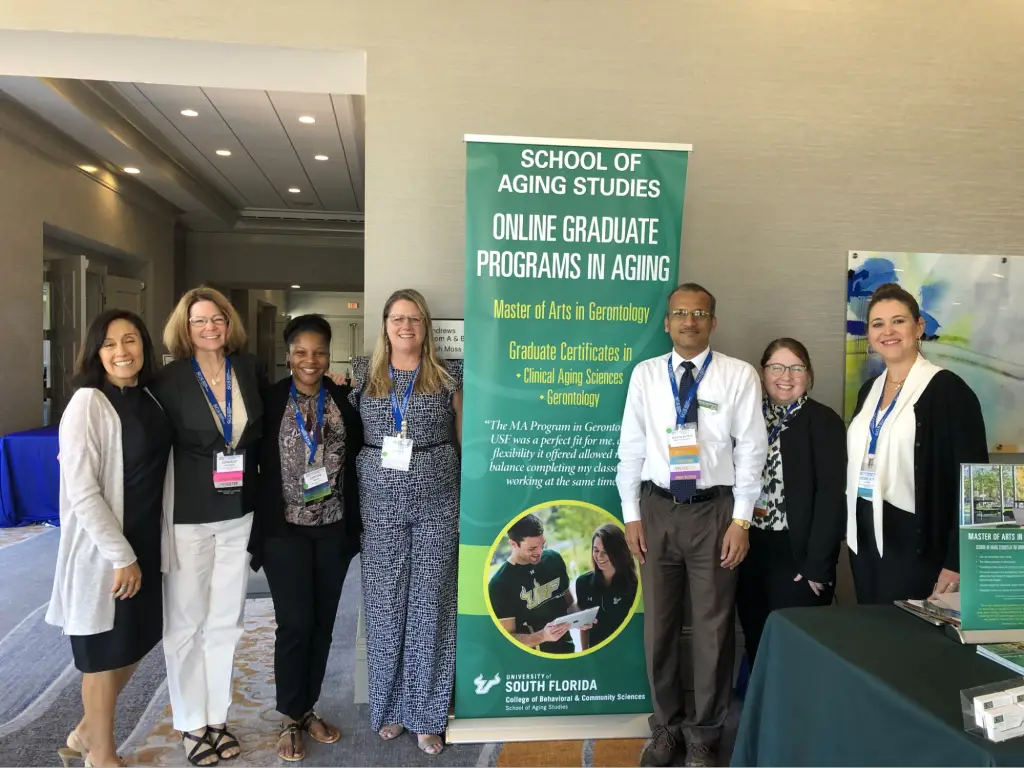
- Acceptance rate: 49%
- Average entry score: 1240-1390 SAT or 27-31 ACT
- Student-to-faculty ratio: 22 to 1
- Estimated cost of attendance (tuition and fees): $23,866-$34,780
- Average earning potential for graduates: $24,858 (College Factual)
The University of South Florida’s School of Aging is a place where future gerontologists are molded into compassionate and skilled professionals.
With an interdisciplinary approach to studying the aging process, students are immersed in learning about the biological, psychological, and social aspects of aging.
The school also emphasizes practical experience, with internships and research opportunities where students can work alongside experts in the field. What’s more, cultural competence is a top priority, ensuring that students are equipped to work with older adults from diverse backgrounds.
Source: USF School of Aging
What’s it like to study at the University of South Florida?
#4. San Diego State University
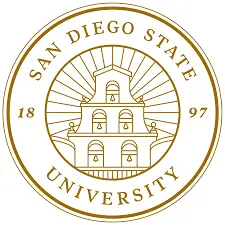

- Acceptance rate: 38%
- Average entry score: 1120-1330 SAT or 22-29 ACT
- Student-to-faculty ratio: 25 to 1
- Estimated cost of attendance (tuition and fees): $31,484-$43,364
- Average earning potential for graduates: $68,000 (UCSD)
San Diego State University offers a comprehensive range of Gerontology programs, including a Bachelor of Arts (BA) in Gerontology.
The BA in Gerontology is a multidisciplinary program that provides students with an understanding of the aging process and the issues that affect older adults.
Students are also required to complete a fieldwork experience, which provides hands-on training in working with older adults. Graduates of the program are prepared for a variety of careers in healthcare, social services, and government agencies.
The program also prepares students for graduate studies in gerontology or related fields.
Source: SDSU School of Social Work
What’s it like to study at San Diego State University?
#3. Case Western Reserve University
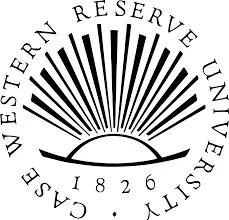

- Acceptance rate: 30%
- Average entry score: 1340-1510 SAT or 32-35 ACT
- Student-to-faculty ratio: 9 to 1
- Estimated cost of attendance (tuition and fees): $62,234
- Average earning potential for graduates: $35,600 (School Authority)
Case Western Reserve University’s sociology department offers a unique perspective on gerontological studies. It provides students with a comprehensive understanding of aging and its impact on society.
Through a combination of rigorous coursework and hands-on research opportunities, students gain valuable skills in data analysis, critical thinking, and communication. This program prepares students for careers in a variety of fields, including social work, healthcare, and public policy.
The department has a long tradition of placing students in internships with local organizations. This allows them to apply their skills and make meaningful contributions to the field.
Source: Department of Sociology
What’s it like to study at Case Western Reserve University?
#2. University of Southern California

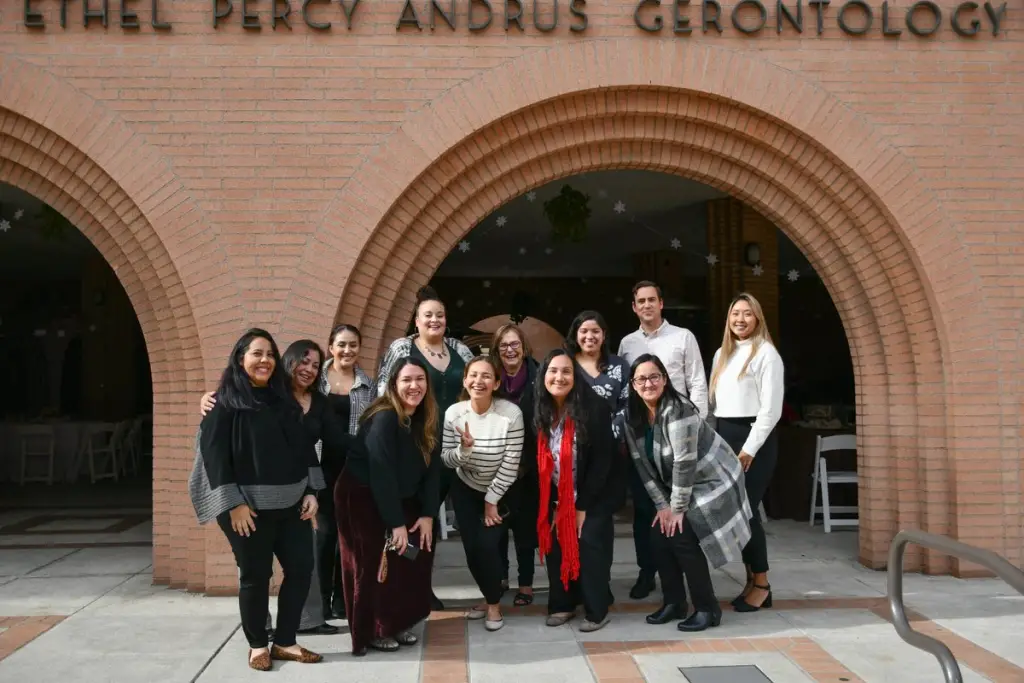
- Acceptance rate: 16%
- Average entry score: 1340-1530 SAT or 30-34 ACT
- Student-to-faculty ratio: 9 to 1
- Estimated cost of attendance (tuition and fees): $81,659
- Average earning potential for graduates: $47,500 (College Factual)
The USC Leonard Davis School of Gerontology offers a comprehensive and interdisciplinary curriculum that helps students become better professionals in this field.
Through rigorous coursework and hands-on experience, students gain a deep understanding of the biological, psychological, and social aspects of aging.
They also learn practical skills such as program development, policy analysis, and advocacy. The school provides ample opportunities for students to engage with experts in the field, participate in research projects, and collaborate with community organizations.
Graduates of the program are well-equipped to lead innovative and effective solutions to the challenges of an aging population.
Source: The USC Leonard Davis School of Gerontology
What’s it like to study at the University of Southern California?
#1. Georgetown University

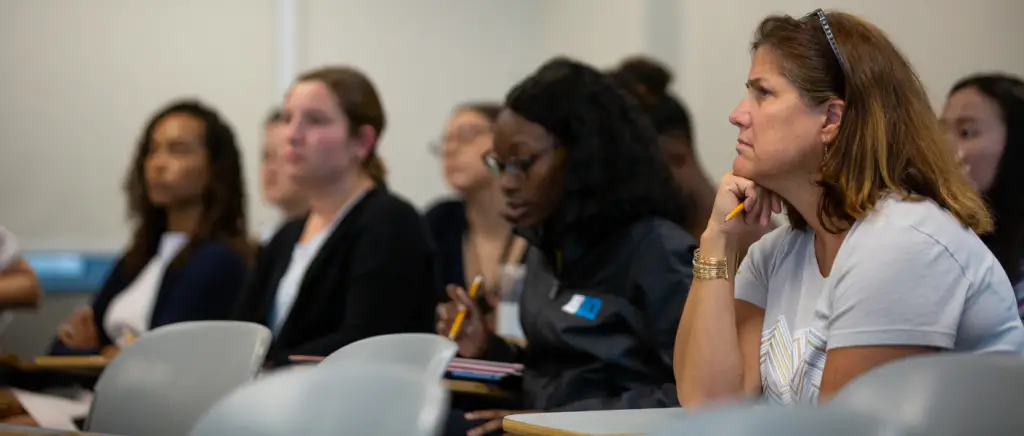
- Acceptance rate: 12%
- Average entry score: 1370 SAT or 29 ACT
- Student-to-faculty ratio: 11 to 1
- Estimated cost of attendance (tuition and fees): $82,505
- Average earning potential for graduates: $62,213 (Zippia)
Georgetown University’s Master of Science in Aging and Health is a great gerontology program.
This program equips students with the skills and knowledge to tackle the unique healthcare needs of older adults. From geriatric pharmacology to end-of-life care, students will become well-versed in the issues facing older adults.
With a focus on interdisciplinary collaboration and evidence-based practices, graduates of this program are ready to take on the world of gerontology like a boss and make a real difference in the lives of older adults.
Source: Georgetown University
What’s it like to study at Georgetown University?
Conclusion
Discover the best gerontology programs to make a positive impact on the lives of seniors.
With a variety of options available, do your research and find the perfect program that aligns with your interests and career aspirations. Start making a difference in the world of aging today.
Selection Criteria
Here is a list of the factors we considered when selecting the best gerontology schools:
Please note that the order in this list might vary by ranking criteria and sources.
- Reputation and ranking of the school: We looked for schools that have a strong reputation and high ranking in gerontology.
- Faculty expertise, qualifications, and specialization: We researched the faculty members and their areas of expertise, and qualifications to ensure that the school has professors with relevant expertise and specialization in the areas of gerontology that are of interest.
- Curriculum and resources: We evaluated the curriculum to ensure it aligns with students’ interests and career goals and considered the quality of the school’s facilities and resources, such as labs, equipment, and libraries.
- Opportunities for hands-on learning and research: We looked for schools that provide opportunities for hands-on experience through internships, co-op programs, or fieldwork.
- Student support services and alumni network: We considered the availability of support services and the strength of the alumni network in providing mentorship, internships, and job opportunities after graduation.
- Extracurricular activities and diversity: We evaluated the availability of extracurricular activities and clubs that align with students’ interests and considered the school’s diversity and inclusivity.
- Networking and post-graduation support: We researched the school’s network of alumni and their post-graduation support for gerontology students, and also considered if the schools have a strong network of gerontology professionals and researchers.
Frequently Asked Questions
Q1. What courses are included in a gerontology program
Gerontology programs typically include courses in biology, psychology, sociology, public policy, and health care.
Specific courses may cover topics such as the biology of aging, social policy and aging, cognitive changes in aging, and end-of-life care.
Q2. Are there any online gerontology programs available?
Yes, there are many online gerontology programs available. Online programs can be a convenient option for students who are unable to attend traditional on-campus programs due to location or other obligations.
Q3. How much does a gerontology program cost?
The cost of a gerontology program varies widely depending on the institution, degree level, and program structure.
Tuition for a bachelor’s degree can range from $10,000 to $50,000 per year, while a master’s degree can range from $15,000 to $60,000 per year. Doctoral programs can cost upwards of $60,000 per year.
Q4. How long does it take to complete a gerontology program?
The length of a gerontology program varies depending on the degree level and program structure. A bachelor’s degree typically takes four years to complete, while a master’s degree can take one to two years.
A doctoral program can take four to six years to complete.
Q5. What skills are important for success in gerontology
Successful gerontologists need strong communication and interpersonal skills, critical thinking and problem-solving abilities, compassion for older adults—and a solid understanding of aging.
Additionally, research and data analysis skills may be important for some careers in gerontology.
References
[1] Official Websites
[2] Salary Data from Glassdoor, College Factual, Grad Reports, College Simply, and Zippia, among others
[3] Ranking references including news media such as Colleges Offering a Gerontology Major


